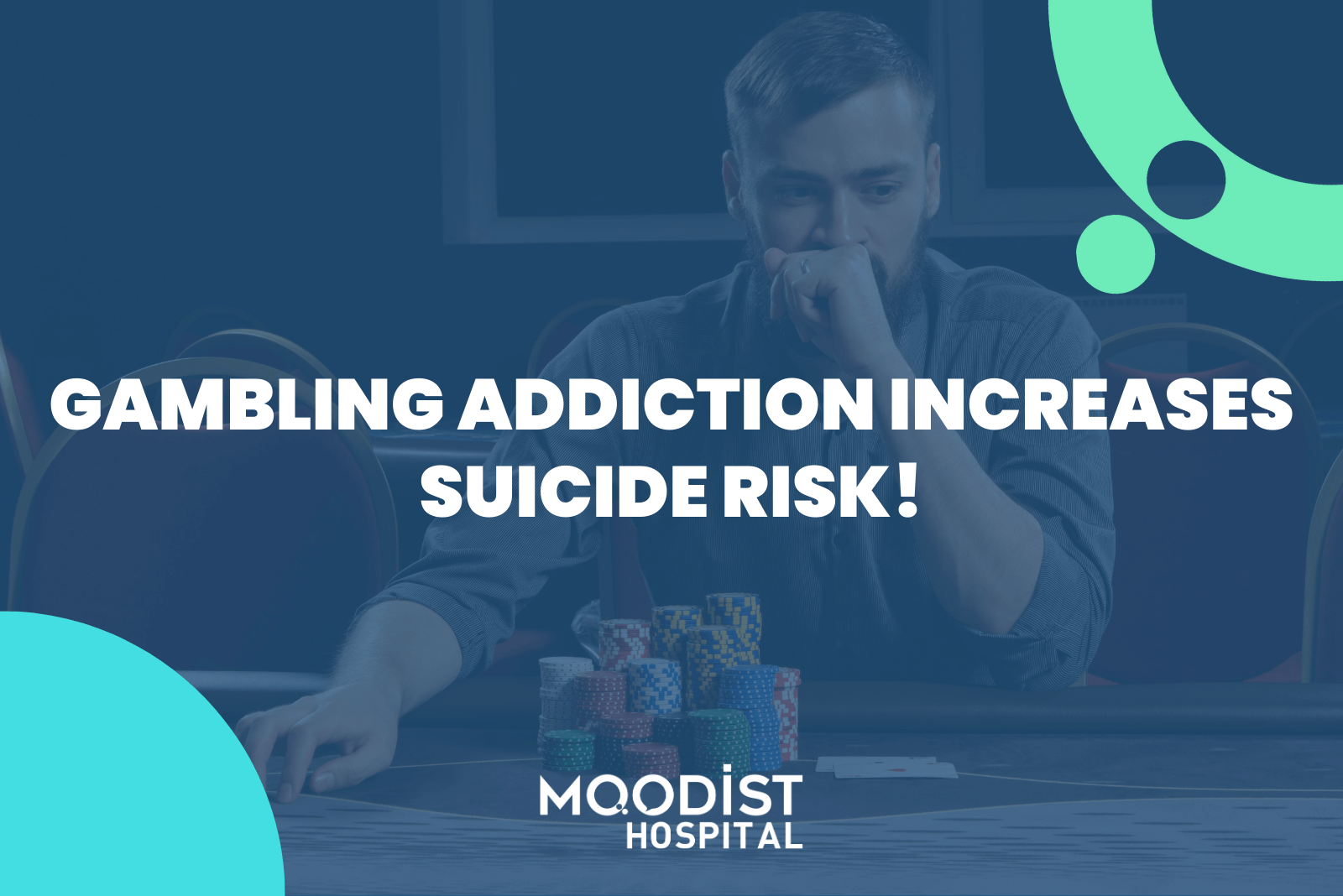
Gambling addiction is a type of addiction that has a significant impact on both the individual and their environment. According to studies, 25 per cent of people addicted to gambling worldwide are at risk of suicide. Psychologist Yusuf Babacan, an expert in the field of gambling treatment, underlines that 1 out of every 4 gambling addicts is at risk of suicide.
Suicidal thoughts and suicide attempts in people with gambling addiction are pretty high compared to the general population. Psychologist Yusuf Babacan from Moodist Hospital points out that many psychological disorders such as depression, anxiety disorder, sleep disorder, alcohol and drug use are added to this challenging situation together with gambling addiction and states that gambling behaviour turns into addiction very quickly and most of the time people are not aware of the addiction. Psychologist Babacan emphasises that gambling should not only be considered as a financial loss but also that gambling addiction affects family relationships, work and education life, isolates the person and causes damage to their social status. Psychologist Yusuf Babacan cites the data on gambling addiction as follows: “Studies conducted around the world show that 77 per cent of gambling addicts have suicidal thoughts, and 20 per cent have attempted suicide before. The rate of attempted suicides caused by gambling addiction is also very high. In studies examining suicide cases around the world, we also see that 22 out of 173 suicide cases are related to gambling addiction.”
Watch out for these 10 symptoms.
Psychologist Yusuf Babacan, who states that people who are addicted to gambling often do not accept that they are addicted, says that gambling addiction can be mentioned if you have 4 of the symptoms he mentioned about gambling addiction. Psychologist Babacan lists those symptoms as follows:
- Overthinking gambling,
- Increasing the amount and frequency of gambling over time to achieve the desired excitement,
- Attempting unsuccessfully to quit or reduce many times,
- Feeling uneasy about attempts to reduce or stop gambling,
- Gambling to escape problems or to get rid of unhappiness,
- Gambling again by thinking that they can win the money they have lost,
- Borrowing money, lying to family members, friends and treatment team to hide the fact that they are gambling and losing,
- Committing illegal acts such as fraud, forgery, theft, embezzlement, theft, etc. to obtain the money needed to gamble,
- Jeopardising or losing a significant relationship, a job, an opportunity to succeed in education or a career because of gambling,
- Relying on other people to pay off debts incurred due to gambling.
“Ask for help from your community for treatment.”
Psychologist Yusuf Babacan states that there are many stages of addiction and different interventions are required at each stage and that the person addicted to gambling should first seek help from their environment. Psychologist Yusuf Babacan states that the involvement of the family in the treatment of addiction makes the treatment more successful and lists his recommendations for family members as follows:
- Get the correct information about gambling addiction before intervening,
- Manage all the financial resources of your gambling-addicted relative for at least 1 year,
- Restrict methods of gambling (such as smartphones),
- Motivate the gambling addict and make them feel that they are not alone,
- Do not resort to threats, violence, exclusion, marriage, military service or pilgrimage,
- Start the therapy process with a therapist who specialises in gambling addiction.
